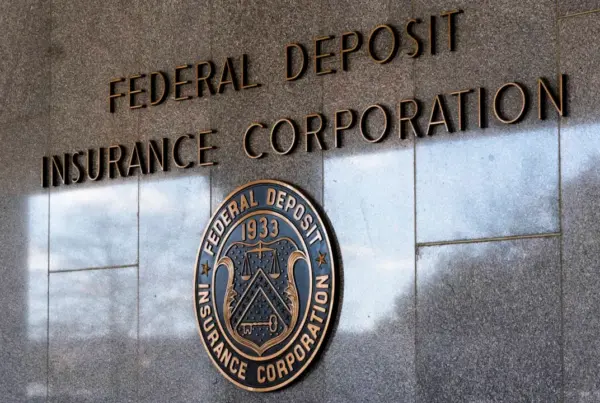“`html
Introduction
On August 23, 2024, the Federal Deposit Insurance Corporation (FDIC) proposed significant amendments to its regulations governing brokered deposits, aiming to enhance the safety and soundness of the banking system. This regulatory update is pivotal as it revises the definition of “deposit broker,” introduces new compliance requirements, and seeks to address the evolving landscape of financial technology and banking practices. Historically, the regulation of brokered deposits has been shaped by various amendments to the Federal Deposit Insurance Act (FDIA), particularly under Section 29, which defines the parameters for deposit brokers and their activities. The primary concern prompting this regulatory action is the potential risk that brokered deposits pose to the stability of insured depository institutions, particularly in times of economic volatility.
Key Regulatory Changes & Analysis
1. Expansion of the Definition of Deposit Broker
The proposed rule broadens the definition of a deposit broker to include additional entities that facilitate the placement of deposits. This change is significant as it captures a wider array of financial intermediaries, including:
- Fintech companies that aggregate deposits on behalf of consumers.
- Investment platforms that offer deposit products as part of their services.
2. New Compliance Requirements
The proposal introduces stringent compliance obligations for entities classified as deposit brokers, including:
- Registration Requirements: All deposit brokers must register with the FDIC, providing detailed information about their operations and the institutions with which they partner.
- Disclosure Obligations: Enhanced transparency requirements mandate that deposit brokers disclose the nature of their relationships with banks and the risks associated with brokered deposits to consumers.
3. Impact on Financial Institutions
The regulatory changes will have far-reaching implications for various stakeholders:
- Banks: Increased scrutiny and compliance costs associated with partnering with deposit brokers.
- Fintech Companies: New registration and operational requirements may necessitate significant adjustments to business models.
- Consumers: Enhanced disclosures aim to inform consumers of the risks linked to brokered deposits.
Legal and Industry Implications
The proposed amendments present several compliance challenges and potential legal risks for affected businesses:
- Compliance Burdens: Financial institutions may face increased operational costs related to compliance with the new registration and disclosure requirements.
- Legal Challenges: Entities may contest the expanded definition of deposit brokers, leading to potential litigation or administrative challenges.
- Regulatory Risks: Non-compliance could result in enforcement actions by the FDIC, including fines or restrictions on operations.
To mitigate these risks, financial institutions should proactively assess their current practices concerning brokered deposits and engage legal counsel to navigate the complexities of the new regulations.
Recommended Actions & Compliance Strategies
Affected parties should consider the following actions in response to the proposed rule:
- Conduct a Compliance Assessment: Review current operations and partnerships with deposit brokers to identify necessary adjustments.
- Prepare for Registration: Develop a strategy for timely registration with the FDIC, ensuring all required information is accurately compiled.
- Update Contracts: Revise agreements with deposit brokers to align with new disclosure obligations and compliance standards.
- Engage in Public Comment: Stakeholders should participate in the public comment period to voice concerns or support for specific aspects of the proposal, influencing the final rule.
Conclusion & Next Steps
The FDIC’s proposed amendments to brokered deposit regulations mark a significant shift in the regulatory landscape for financial institutions. Key takeaways include the expanded definition of deposit brokers and the introduction of new compliance requirements that will affect banks and fintech companies alike. The timeline for implementation is contingent upon the finalization of the rule, with potential adjustments following the public comment period. Stakeholders should remain vigilant for further regulatory developments and prepare for the possibility of legal challenges that may arise in response to these changes. Engaging in proactive compliance measures will be essential for navigating this evolving regulatory environment.
“`


